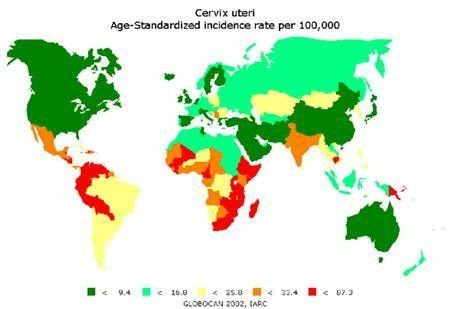Cancer plateaus in affluent West, but spreading in developing nations

While wealthier nations, especially in the West, are witnessing a plateauing of the cancer rate, poorer and developing nations face a spike, according to a new study. In fact, some types of cancers have shown a decline in affluent nations because of better detection, screening and treatment.
The study has been published in Cancer Epidemiology, Biomarkers & Prevention, a journal of the American Association for Cancer Research. Interestingly, cancers of the lung, colorectal and breast, which were earlier seen to afflict the wealthier countries, are now showing an increase in the low and middle-income countries, according to the Forbes.
The study was conducted by Lindsey Torre, an epidemiologist at the American Cancer Society, and her colleagues. The team analysed data between 2003 and 2007, taken from the International Agency for Research on Cancer and the World Health Organisation.
The study findings relate to 50 countries, representing different regions of the world. During the study, the researchers studied global trends for eight major types of cancer – breast, prostate, colorectal, lung, esophageal, stomach, liver and cervical.
Torre says that the rates of many cancers are being brought under control in Western countries through control of known risk factors, early detection and improved treatment.
On the other hand, lower and middle-income countries are seeing a rise in cancer rates due to increase in risk factors typical of Western countries. Smoking, physical inactivity, excess body weight and changing reproductive patterns are some of the risk factors that are becoming more evident in the lower and middle-income countries.
According to the UPI, breast, prostate and cervical cancer can be caught and controlled in a majority of cases, if not cured, in high-income countries because of regular screening guidelines that do not exist in some less privileged nations.
Contact the writer at feedback@ibtimes.com.au or tell us what you think below.




















